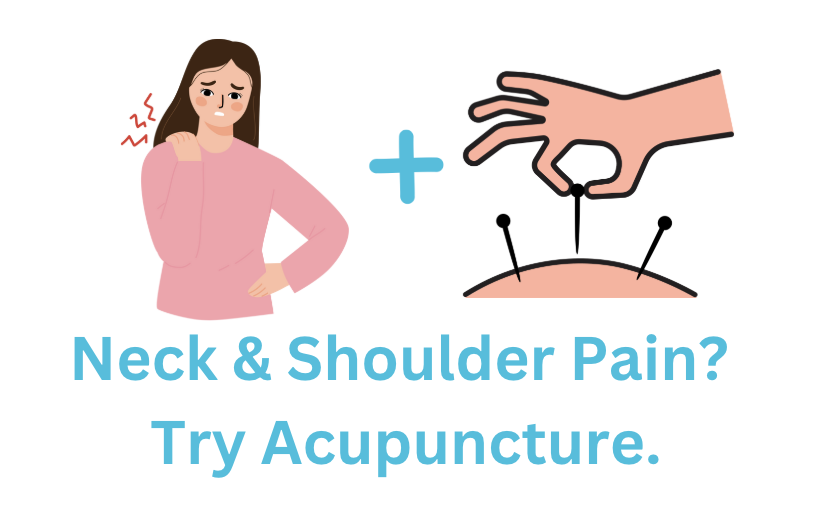Headache Relief Without the Pills: How Acupuncture Can Actually Help
/If you’ve ever had a headache ruin your day, you know how quickly that dull throb behind your eyes or that sharp temple pressure can derail everything. Maybe you’ve tried over-the-counter meds, more caffeine, or even just waiting it out—but what if there was a natural, effective way to stop headaches before they take over? That’s where acupuncture comes in.
At first, the idea of using tiny needles to treat pain might sound a little intimidating, but hear us out. Acupuncture has been helping people find relief from headaches and migraines for thousands of years, and modern research is backing up what ancient practitioners have always known: acupuncture works.
Understanding Headaches from a Traditional Chinese Medicine (TCM) Perspective
In Traditional Chinese Medicine, headaches aren’t seen as just “pain in the head.” Instead, they’re viewed as a sign that your body’s energy—or Qi (pronounced “chee”)—is out of balance. This imbalance can be caused by stress, tension, dehydration, hormonal fluctuations, or even environmental factors like weather changes.
Depending on the type and cause of the headache, your acupuncturist may identify different “patterns” such as Liver Qi stagnation, Qi deficiency, or Wind invasion. (Don’t worry—you don’t need to memorize those terms!) What matters is that each treatment is personalized. Your acupuncturist pinpoints the underlying imbalance and selects acupuncture points to restore harmony and get the energy moving again—no one-size-fits-all solutions here.
The Science Behind the Needles
Even if you’re more into science than ancient philosophy, the research on acupuncture and headaches is hard to ignore. Studies have shown that acupuncture can:
Stimulate your body’s natural painkillers. Acupuncture triggers the release of endorphins—those feel-good chemicals that act like natural morphine.
Reduce inflammation. Many headaches, especially migraines, are linked to inflammatory processes. Acupuncture helps calm that response.
Regulate blood flow. By improving circulation, acupuncture can ease the constriction and dilation of blood vessels often tied to migraine pain.
Relax muscle tension. If your headaches stem from tight shoulders or neck muscles (looking at you, laptop warriors), acupuncture can help those muscles finally unclench.
Reduce stress hormones. Chronic stress is a major headache trigger. Acupuncture has been shown to lower cortisol levels, promoting overall relaxation.
Types of Headaches Acupuncture Can Help
The beauty of acupuncture is its versatility. Whether you’re dealing with a mild tension headache or chronic migraines that hit like clockwork, acupuncture can be adapted to your needs. Common types include:
Tension headaches: Often described as a tight band around the head or pressure at the temples. Acupuncture helps release the muscle tightness and calm the nervous system.
Migraines: These can come with nausea, light sensitivity, or even visual disturbances. Regular acupuncture treatments can help reduce their frequency and intensity.
Sinus headaches: If you feel pressure around your eyes and cheeks, acupuncture can help clear sinus congestion and improve drainage.
Hormonal headaches: Common before menstruation, these respond well when acupuncture helps balance hormone levels naturally.
What to Expect During Treatment
Your first acupuncture session will likely include a short consultation about your health history, lifestyle, and headache patterns. Then, your acupuncturist will gently insert very fine, sterile needles into specific points on your body—often on your hands, feet, and head. You’ll lie comfortably for about 20–30 minutes, and many people actually fall asleep during treatment!
Some patients feel relief immediately, while others notice gradual improvement over a few sessions. For chronic headaches or migraines, consistency is key—regular treatments often lead to longer-lasting results.
Real Relief, Not Just a Quick Fix
One of the biggest differences between acupuncture and popping a pain reliever is that acupuncture works with your body, not against it. While medication may mask symptoms temporarily, acupuncture aims to address the root cause so you can experience fewer headaches over time.
Many patients also report side benefits like better sleep, improved mood, and reduced anxiety—because when your body’s systems are balanced, everything functions a little more smoothly.
When to Consider Acupuncture
If you’re finding yourself reaching for pain medication more than a few times a week, or if your headaches are starting to impact your quality of life, it might be time to consider acupuncture. It’s especially helpful if you prefer a holistic approach or if medications haven’t worked as well as you hoped.
Acupuncture can be safely combined with other treatments too—like massage therapy, chiropractic care, or your prescribed medications. Just make sure to let your acupuncturist know what you’re currently using so they can tailor your care.
The Bottom Line
Headaches are one of the most common health complaints, but they don’t have to control your day. Acupuncture offers a gentle, drug-free way to reduce both the pain and frequency of headaches by helping your body find its natural balance again.
So next time you feel that familiar tension creeping in, consider booking an acupuncture session instead of reaching for another bottle of pain relievers. Your head—and the rest of your body—just might thank you.





















